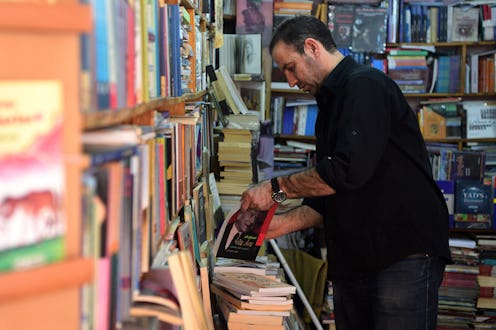
The forgotten book that, rediscovered, takes its place among venerated classics is an age-old trend; "Don't call it a comeback," quoth LL Cool J. But if one end of the spectrum exists, the other must as well, right? What books were considered "classics" but are now largely ignored?
In a recent thread on the r/books subreddit, user -methane- asked, "What are some novels that were once considered classics that have been largely forgotten?" Redditors began flocking with suggestions of books fallen by the wayside. And folks, I was unfamiliar with, like, almost half of them.
"You always hear about authors who died neglected and unknown, only to be revived later in history," wrote -methane-. "Melville's Moby-Dick is a famous example of this. Surely the opposite of this has taken place, as well." The redditor also asked for any theories regarding the decline in popularity for certain novels. What causes a fall from grace? Is it gradual, or is there an identifiable turning point? Among the redditors arose an additional discussion as well: Where is the line between "classic" and "bestseller"? After a substantial amount of time has passed, is there any line at all? No real conclusion was reached, but it will certainly be present in the back of my mind the next time I note that a book is a New York Times bestseller, for example.
Now, full disclosure: The majority of writers mentioned in the following list are white, European men. There are several explanations for this, mainly that the voices of white men have been amplified by the media, by publishing houses, by fellow white men, for years.
1'Telemachus' by Francois de Fenelon
Considered a masterpiece of French political theory, Telemachus reportedly influenced Montesquieu and Rousseau in its retelling of the education of Ulysses son, Telemachus.
2'Of Human Bondage' by W. Somerset Maugham
Though Of Human Bondage is considered, by some, to be the Catcher in the Rye for adults (specifically, British adults), it currently sells on Amazon for under $2.00. Published in 1915 and believed to be largely autobiographical, Of Human Bondage follows orphan Philip on a bildungsroman through Europe.
3'The Magnificent Ambersons' by Booth Tarkington
Hi Booth Tarkington sounds like a 4-year-old's imaginary astronaut friend, but he is, in fact, only one of three writers to win the Pulitzer in Fiction twice (William Faulker and John Updike join him). The Magnificent Ambersons, which won the Pulitzer in 1919, follows the decline of the superrich Ambersons in the wake of the Industrial Revolution.
4'Scaramouche' by Rafael Sabatini
Rafael Sabatini's 1921 novel Scaramouche is set during the French Revolution; its protagonist, André-Louis Moreau, engages in political resistance by quitting law and joining up with a ragtag groups of actors (yes, really, this is not a John C. Reilly parody film). Sabatini himself was a prolific writer, publishing 31 novels, eight short story collections, six nonfiction books, and a play.
5'The Moonstone' by Wilkie Collins
One would think, in creating what is believed to be the first modern English detective novel, you would solidify your place among the literary greats; that seemingly is not the case for Wilkie Collins, whose 1868 epistolary novel The Moonstone pioneered a new genre. Though he was well-loved in the Victorian era, Collins was overshadowed by BFF Charles Dickens following his death in 1889.
6'Star Maker' by Olaf Stapledon
Though he was born in England, Olaf Stapledon spent his formative years in Egypt. His 1937 novel Star Maker, in which an unnamed narrator travels to other galaxies and parallel universes until he becomes part of the "cosmic mind," is considered a classic within the sci-fi genre; it currently ranks #1,106 within Amazon's Space Opera subgenre.
7'Rope' by Patrick Hamilton
This English playwright and novelist gained fame for his "Dickensian" portrayal of British street culture amid the World Wars. Though two of his more successful plays, Rope and Gas Light, were adapted for the screen (Rope, in particular, was produced by Alfred Hitchcock in 1948), Hamilton himself was already considered a neglected talent by the late 1960s.